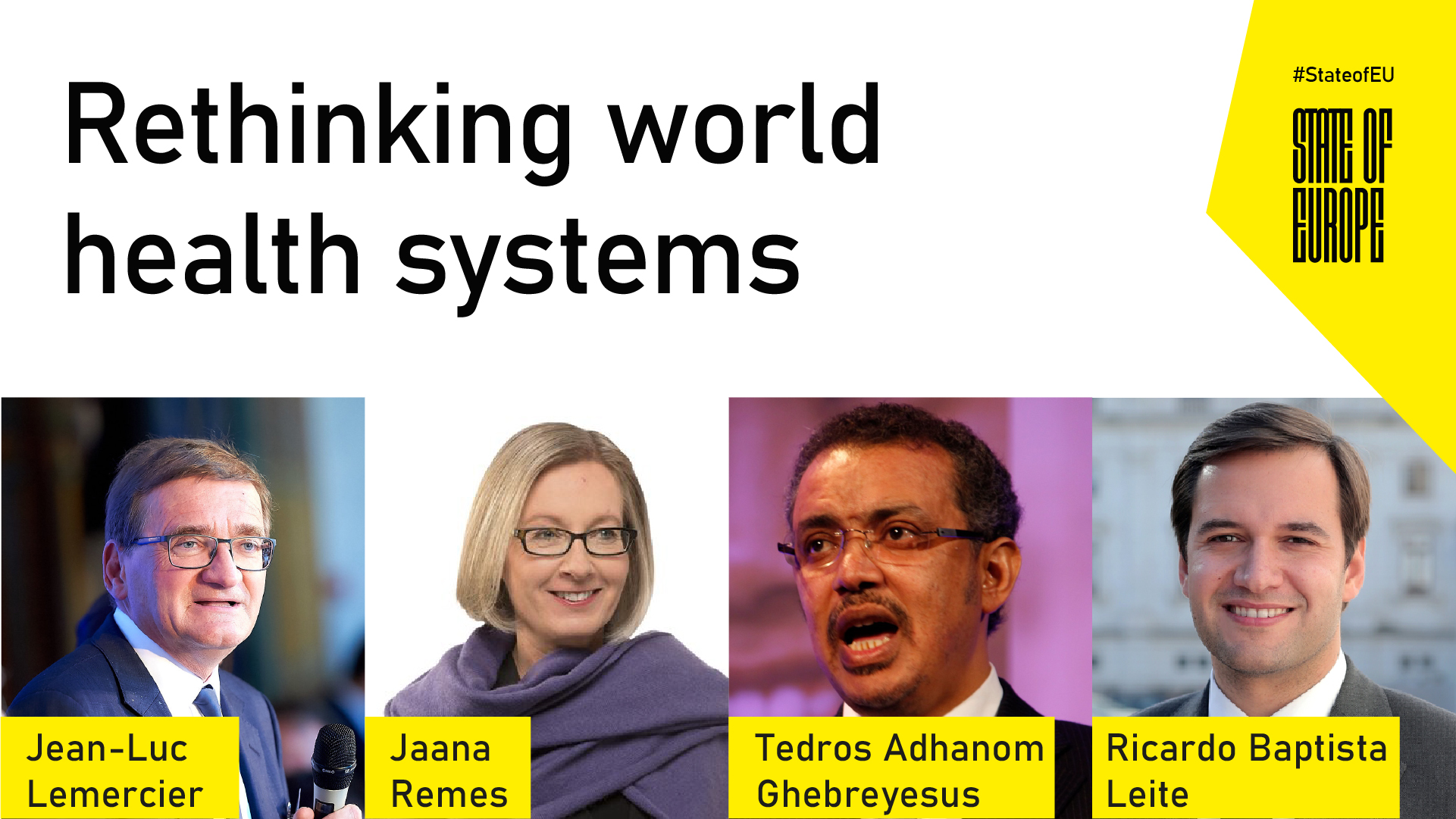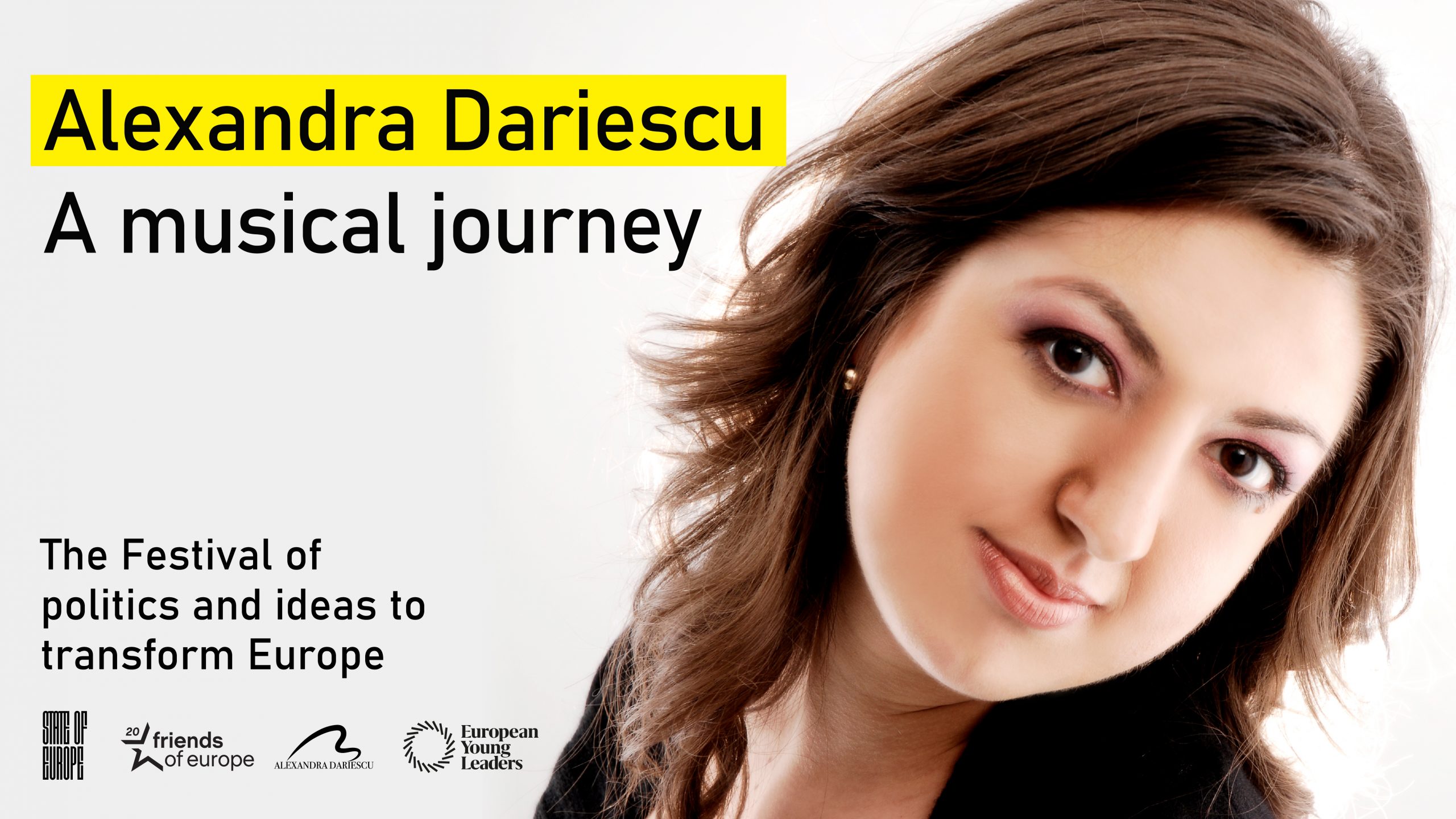State of Europe 2020: Daily diary — Day 3
Here’s a quick recap of the third day of State of Europe – the festival of politics and ideas to transform Europe.
Tech for good / Rethinking world health systems
The havoc wrought by COVID-19 has added urgency to the need to upgrade public health systems and instigate broad societal defences against future biological threats. Such solutions have to look beyond a narrow medical focus. “Any efforts to improve human health are doomed unless they address the critical interface between humans and animals and the existential threat of climate change,” (23:06) cautioned Tedros Adhanom Ghebreyesus, Director-General of the World Health Organization (WHO). Tedros was among several speakers who called for greater investment in primary health care and more efforts to mainstream public health concerns into all aspects of government policy. The session also heard appeals for a cultural shift to maximise the healthcare impact of new digital technologies. International cooperation is key to fighting the pandemic and looking ahead. “If we were united, we wouldn’t have been where were we are now, we could have reduced the damage,” (27:37) Tedros added. “It’s still not too late to cooperate in true solidarity, to fight this virus together, but we have paid dearly because of the division, the lack of cooperation, lack of solidarity.” Before the debate there was an “idea sharing” event on how to use “tech for good” in health care.
Highlights of the session included:
8:36 – a cultural transformation is needed to ensure that technological advances can take healthcare into the 21st Century (Bertalan Meskó, Founder of The Medical Futurist and 2019 European Young Leader)
13:18 – Friends of Europe poll shows 45% of Europeans want the EU to control the spread of COVID-19 by coordinating EU-wide health systems (Tamsin Rose, Senior Fellow for Health at Friends of Europe)
21:12 – three fundamental changes all countries must make: invest in primary healthcare; take a “one health” approach that includes animals and the planet; look beyond health systems to include all sectors in pandemic preparedness (Tedros)
33:15 – COVID-19 has accelerated the use of innovative medical practices: they should be maintained and expanded after the pandemic (Jean-Luc Lemercier, Corporate Vice-President of Europe, Middle East, Africa, Canada & Latin America at Edwards Lifesciences)
39:58 – a “moderate improvement” in healthcare efficiency could boost the European economy by $2.5 trillion by 2040 and “add 10 active healthy years” to citizens’ lives (Jaana Remes, Partner at the McKinsey Global Institute)
45:39 – a “NATO for health” to coordinate international responses; better firewalls to limit political interference with scientific advice (Ricardo Baptista Leite, Founder and President of UNITE Member of the Portuguese National Parliament and 2015 European Young Leader)
1:33:30 – the light at the end of the tunnel: WHO hopes a COVID-19 vaccine will be available “within a few months”, is working on delivery preparations (Zsuzsanna Jakab, Deputy Director-General World Health Organization)
Alexandra Dariescu – a musical journey
Classical pianist and European Young Leader Alexandra Dariescu closed day three of the festival of politics and ideas with a journey through meaningful pieces of powerful music.
As a strong advocate for bringing more women and minorities into the classical music world, Dariescu played, amongst others, pieces by Lili Boulanger, the first woman composer to win the Prix de Rome, and Florence Price, noted as the first African-American woman to be recognised as a symphonic composer.
Her performance closed with a powerful rendition of Beethoven’s Ode to Joy. She spoke of her inspiration, her vision for inclusion in her space, the effects of the current COVID19 crisis on the artist community and what music means to her.
0:54 “Arts and culture are a vital part our lives and not a luxury for the elite.”
2:05 “Music is no mere entertainment, it heals, it brings solace, it brings joy, it makes one reflect and even act. Music brings beauty in life; music had the capacity to take away fear and loneliness.”
4:42 “In 2019, just 5.03% of the scheduled concerts worldwide included works by female composers … So it’s time to act.”
Coming up tomorrow, 15 OCT:
- 09.30-10.00 CEST — Debating Europe citizens’ panel – The reality of racism: breaking Europe’s self perpetuating power structure
- 10.00-11.00 CEST — Policymakers’ debate (by invitation only) – Building the resilience of EU’s healthcare systems
- 14.00-15.00 CEST — High-level session – Connected Europe: a digital enabled recovery
- 15.30-17.00 CEST — Friends of Europe’s Board of Trustees meeting (by invitation only)
- 17.30-18:30 CEST — High-level session – Going it alone does not work
- 18:30 – 19:00 CEST — Festival closing – We the People: What vision of Europe do citizens want?
- 19.00 CEST — Musical finale: Syrian violinist Shalan Alhamwy & Belgian accordionist Jonas Malfliet, best known as Damast Duo
To our registered discussants, don’t forget to login to the dedicated website tomorrow morning to take your place in the discussions.
To those of you following the livestream of State of Europe from our website, please don’t hesitate to post your questions on Twitter using the #StateofEU hashtag, and we’ll get it into the discussion.
See you all tomorrow for the final day of the festival of politics and ideas!
Stay informed


